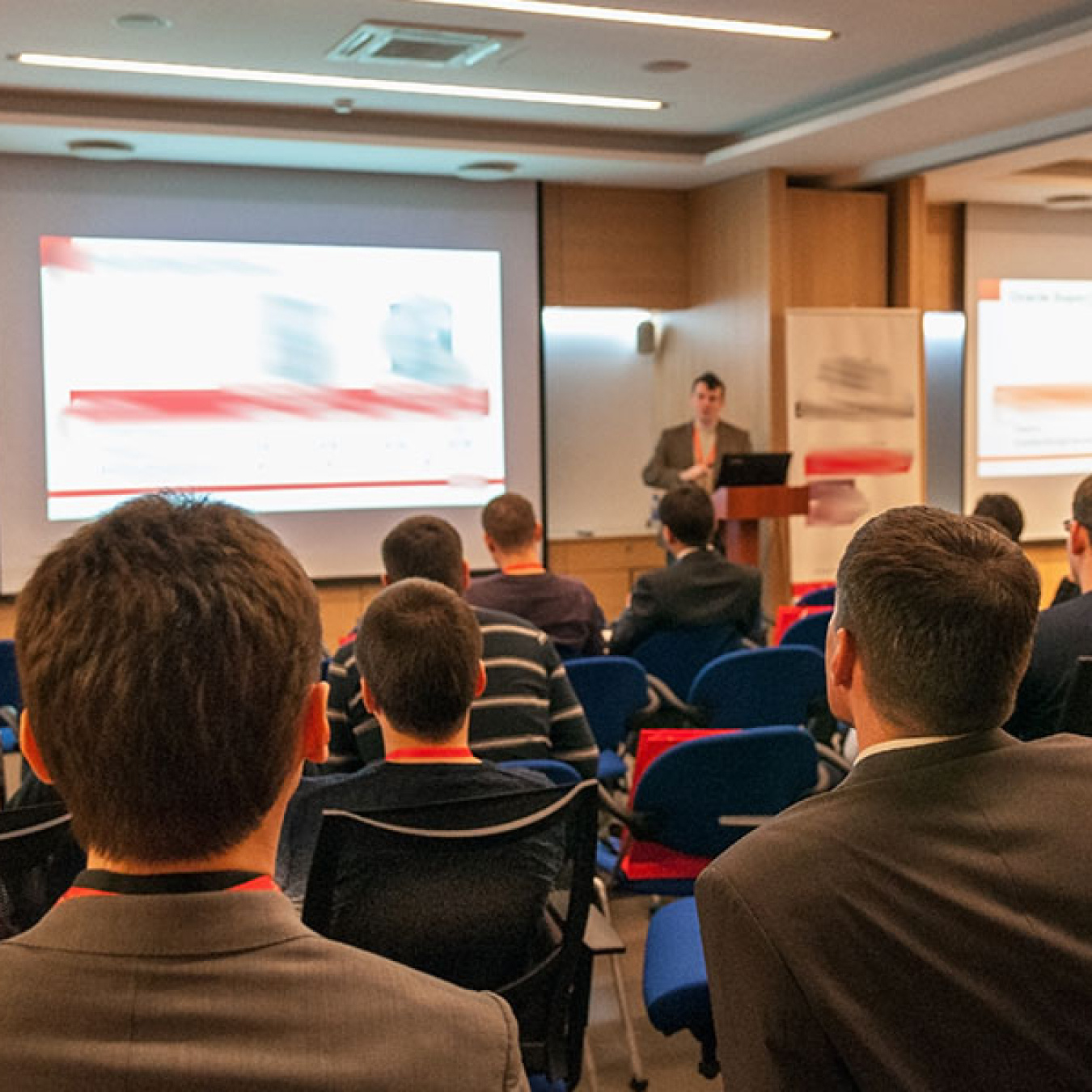Strong federal and state support, declining system costs, and growing public and private sector demand for solar energy have all contributed to a rapid increase in solar deployment over the past decade. In order to support this growth, the solar workforce will need to grow significantly with jobs that are available to workers from all backgrounds, provide competitive wages and benefits, and offer opportunities for union membership.
Solar workforce research and development at the U.S. Department of Energy (DOE) Solar Energy Technologies Office (SETO) supports efforts to prepare and sustain this skilled solar energy workforce. Workforce development initiatives funded by SETO include online and in-person training and education programs, work-based learning opportunities such as internships and apprenticeships, collegiate competitions, certification programs, and support services such as career counseling, mentorship, and job readiness. Program performance metrics are analyzed to assess the impact of different workforce strategies and partnerships, which can then inform target metrics and intended outcomes for future programming. Additionally, SETO solicits stakeholder feedback and analyzes industry growth and workforce trends in order to make informed decisions related to the solar workforce.
Through these efforts, SETO supports a solar energy workforce ecosystem that provides affordable learning opportunities and pathways to stable careers and economic prosperity. A well-trained workforce supports solar energy that will safely and reliably generate power now and for decades to come. Learn more about SETO’s goals.
Solar Workforce Research Topics
-
 Solar design and installation training prepares workers to properly design, install, and maintain solar energy assets.April 14, 2025
Solar design and installation training prepares workers to properly design, install, and maintain solar energy assets.April 14, 2025 -
 Grid engineering and distributed energy resource integration training focuses on how to incorporate solar and other DERs into the electric distribution and transmission system.June 22, 2022
Grid engineering and distributed energy resource integration training focuses on how to incorporate solar and other DERs into the electric distribution and transmission system.June 22, 2022
-
 In addition to people who work directly with solar energy systems, many related professionals play a key role in spurring solar adoption, ensuring system safety, and reducing installation costs.February 24, 2023
In addition to people who work directly with solar energy systems, many related professionals play a key role in spurring solar adoption, ensuring system safety, and reducing installation costs.February 24, 2023
Each SETO research topic areas targets an essential segment of the solar energy workforce and its unique training and skills requirements. Just as solar installation professionals must be trained to properly design, install, and maintain solar energy systems, power systems engineers must be trained to successfully integrate these new distributed resources into the grid and drive innovation. Additionally, many related professionals, such as architects and code enforcement officials, play a key role in easing solar adoption and ensuring system safety and integrity.
Solar Workforce Initiatives
SETO has supported a variety of workforce initiatives to assess and address the needs of a growing clean energy economy:
- Solar Ready Vets – connects veterans and transitioning military service members with career training, professional development, fellowships, and employment opportunities in the solar industry
- Expanding the Solar Workforce and Digital Adaptation Training for DER on the Grid - develops solar training for a variety of participants while also preparing the utility industry for a digital future and modern grid with high penetration levels of solar and other distributed energy resources
- Solar District Cup – annual collegiate competition challenging multidisciplinary student teams to design and model optimized distributed energy systems for a campus or urban district.
- Education Materials for Professional Organizations Working on Efficiency and Renewable Energy Developments (EMPOWERED) funding program – provides training and educational resources for first responders, safety officials, and building managers and owners working with distributed energy resources.
Reports resulting from research projects can be found on the Office of Science and Technical Information (OSTI) website.
Additional Resources
- IREC Annual Solar Jobs Census
- IREC Solar Industry Diversity Study
- 2024 U.S. Energy Employment Report
- BLS Solar and Wind Occupations: A Look at the Next Decade
- DOE Launches Initiatives to Accelerate Solar Deployment in Underserved Communities
- Federal Energy and Manufacturing Workforce Training Program
- How to Start a Solar Curriculum in Your School
- SETO Fellowships and Research Opportunities

